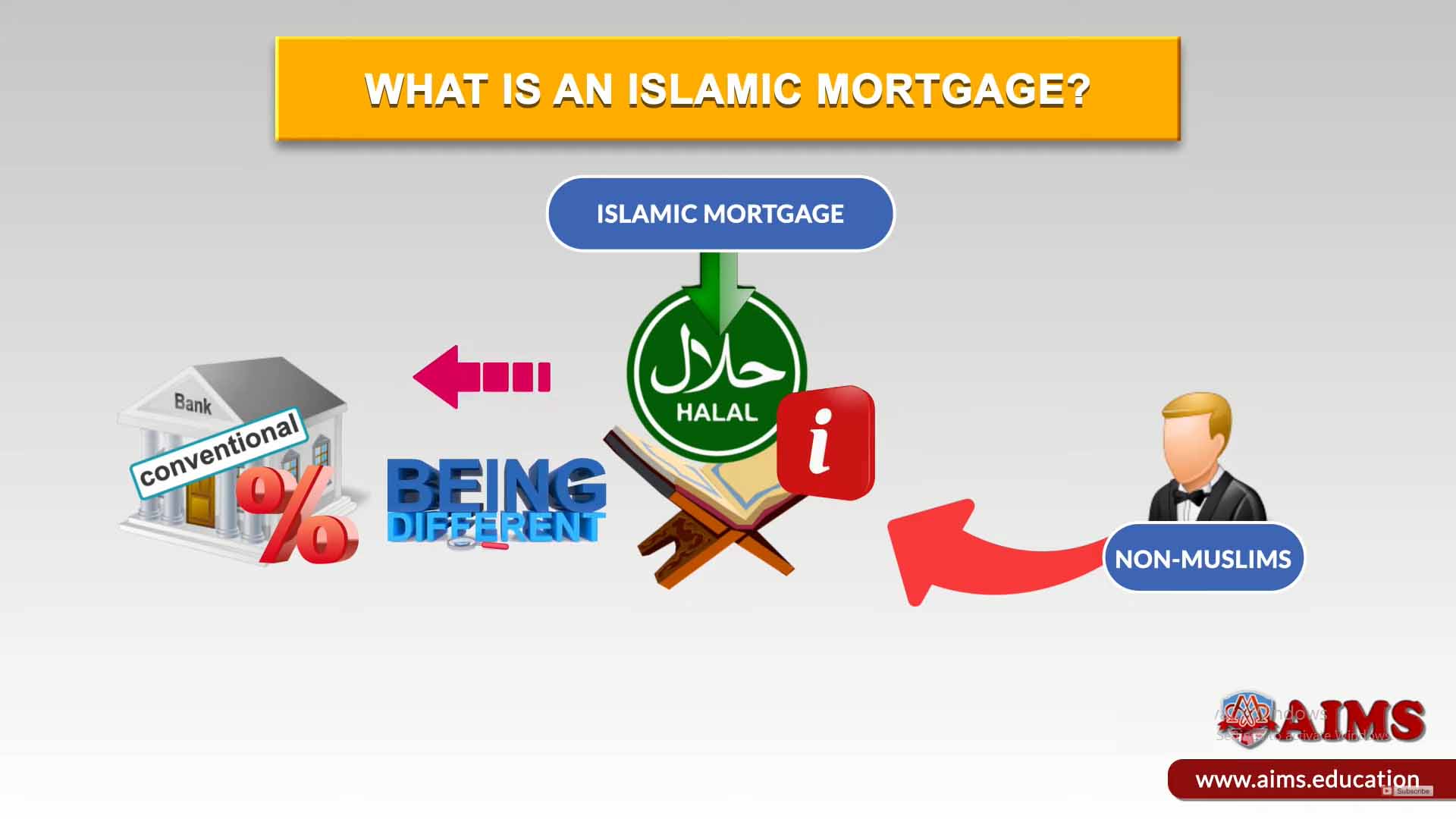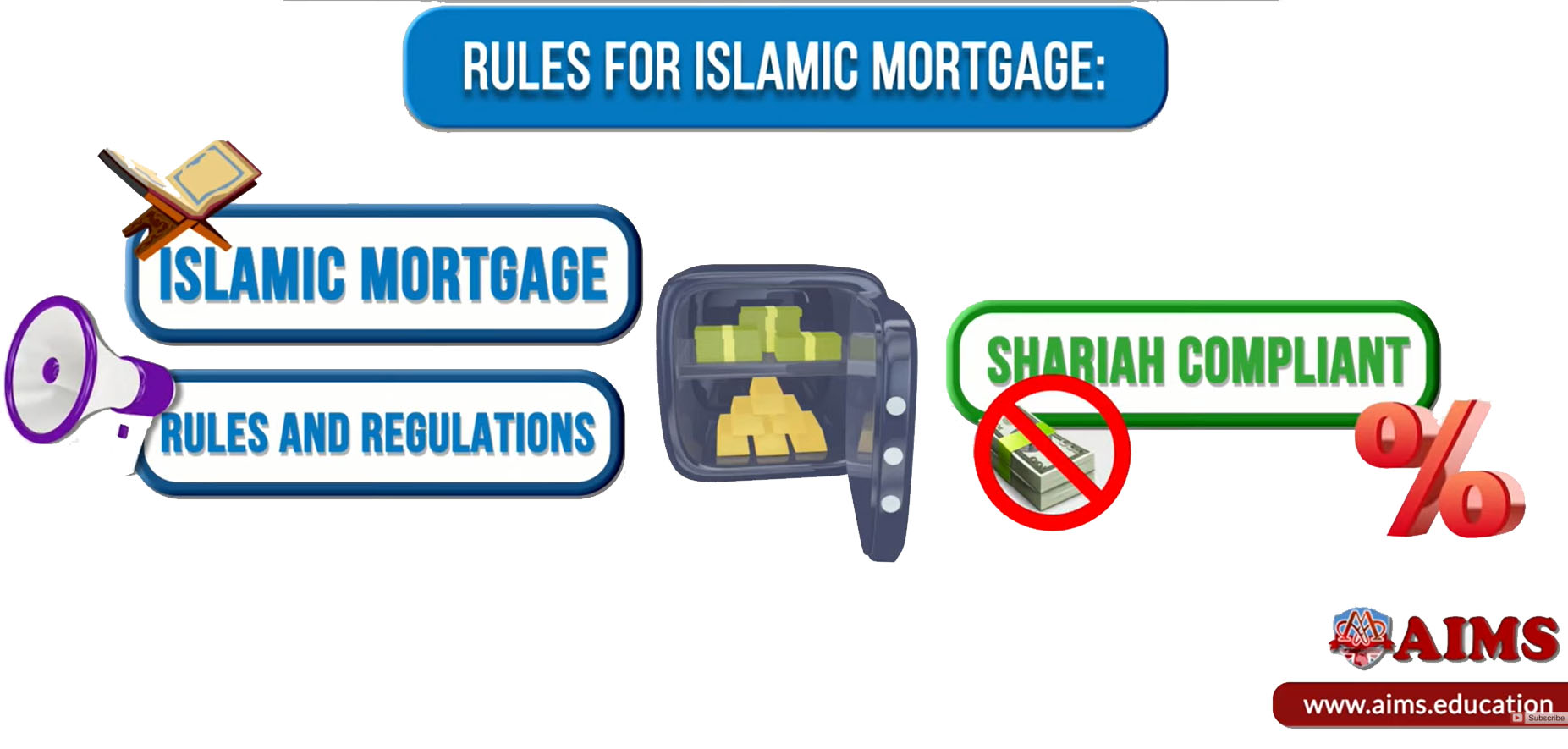What is a Halal Mortgage?
Halal mortgages, also known as Islamic mortgages, are financial products that adhere to Sharia law, which prohibits the charging and receiving of interest is prohibited, and they use a slightly different structure. In halal mortgage, the buyer and the lender enter into a partnership where the property is jointly owned by both parties. The buyer makes monthly payments to the lender, who gradually buys out their share of the property over time. Once all payments are complete, ownership of the property is transferred to the buyer. This structure allows Muslims to purchase a home without violating their religious beliefs. However, Shairah law mortgages may come with slightly higher costs due to administrative fees and additional checks required by Sharia law.

Why the Conventional Mortgages are Haram?
Conventional mortgages are considered Haram, or forbidden, in Islam for several key reasons:
1. RIBA (INTEREST):
The most significant issue is the payment and receipt of interest, known as Riba in Arabic. In a typical mortgage, the borrower pays back more than they borrowed due to interest charges. This transaction is seen as unjust in Islamic law as it benefits the lender at the expense of the borrower.
2. DEBT AND RISK:
In a conventional mortgage, the entire transaction risk is placed on the borrower. If the borrower is unable to make repayments, they could lose their home, leading to severe financial hardship. In contrast, a halal mortgage is more equitable, sharing the risk between the lender and the borrower.
What Are the 3 Famous Islamic Mortgage Models?
Several types of Islamic mortgages differ in terms of structure and terms, but all adhere to the principles of Sharia law:
1. Murabahah Based Halal Mortgage (Cost Plus Financing)
In this type of Islamic finance mortgage, the bank purchases the property and then sells it to the buyer at a higher price. The buyer pays for the property in installments, and the markup price includes the bank’s profit.
2. Diminishing Musharakah-Based Halal Mortgage (Diminishing Partnership)
This is another form of partnership where the bank and the buyer jointly purchase the property. Unlike the Musharaka model, however, the aim here is to gradually reduce the bank’s share in the property, hence the term ‘diminishing’. The buyer rents the bank’s share of the property and simultaneously pays to buy out the bank’s share over time. This dual payment system allows the buyer to eventually become the sole owner of the property while complying with the principles of Islamic finance.
3. Ijarah Based Halal Mortgage (Islamic Lease)
Ijarah is a lease-based halal mortgage where the bank purchases the property and then leases it to the buyer for a predefined term. During this term, the buyer makes regular rental payments to the bank, while having the option to buy the property outright at any given time. This arrangement ensures that a tangible asset backs every transaction, and the buyer does not pay interest, aligning with the principles of Islamic finance. The risk in this type of agreement is largely borne by the bank, as it retains ownership of the property until the lease term ends or the buyer decides to purchase the property.

How Does an Islamic Mortgage Work?
Under the concept of Islamic mortgage for buying the house, the bank purchases a house or plot from the owner of the property, and re-pitch it to the “borrower” for financial through an Islamic Sharia-compliant financial instrument. Different composes include the bank turning into a cooperate with the “borrower” so both co-possess the house or business, a situation in which the borrower bit by bit purchases a lot of proprietorships with a progression of installments.
Halal Mortgage Example # 1: Home Financing Through Murabahah
- The buy and offering cost and the net revenue must be unmistakably expressed at the season of the deal assertion.
- Installment of the Murabaha cost might be in a spot, in portions, or a single amount after a specific timeframe.
Halal Mortgage Example # 2: Home Financing Through Ijarah
If you are planning to get a Halal mortgage, Ijarah is a reliable option. Here are some of the rules and regulations you need to consider.
STEP-1:
You discover a house to buy and get a real cost with the lender.
STEP-2:
Likewise, with any home loan, you at that point concur the measure of the home loan with your Islamic moneylender Your bank will then buy the property inside and out.
STEP-3:
You at that point go into two concurrences with the loan specialist.
- You will pay back the price tag of the property in settled regularly scheduled payments, more often than not more than 25 years (like an intriguing contract).
- You will pay a concurred measure of the lease every month – this gives the loan specialist benefit.
STEP-4:
The lease is set every year, and abatements every year by your slow payment of the price tag of the property.
STEP-5:
At the point when the price tag has been completely reimbursed to the loan specialist, the responsible for the property is completely exchanged from the moneylender to you.
Advancements in the Islamic Banking Field
For those interested in delving deeper into the principles and practices of Islamic banking, numerous educational opportunities are available. Prospective students can pursue an Islamic Banking and Finance Masters Degree or an Islamic Finance Post Graduate Diploma. These programs provide detailed insights into the principles of Islamic finance, including the concept of halal mortgages. Additionally, for professionals seeking flexibility, Islamic Banking and Finance Online Courses offer a more convenient way to gain this knowledge. Institutes such as the Islamic Finance Institute in the UK are renowned for their comprehensive programs in this field. By equipping oneself with this education, individuals can better master and navigate the corporate world of Islamic banking and finance.

How to Check that Your Islamic Mortgage is Really Halal and Shariah Compliant?
To ensure your Islamic mortgage is truly Halal and Shariah-compliant, you need to verify several key points:
1. SHARIAH SUPERVISORY BOARD
The lender should have a reputable Shariah Supervisory Board comprising Islamic scholars. These scholars review and approve all products and services to ensure Shariah compliance.
2. CLEARN CONTRACT
The contract for the halal mortgage should be clear, stipulating that money lending with interest (Riba) is not involved. Make sure that the agreement does not contain any hidden terms or conditions that could contradict Islamic principles.
3. PROFIT AND LOSS SHARING
Check whether the contract includes a profit and loss sharing arrangement. In a truly Islamic loan, the risk must be shared between the lender and the borrower.
4. ASSET-BASED FINANCING
The halal mortgage should be asset-based, meaning that a physical asset, such as a house, is part of the transaction. In Islam, money cannot generate more money – it must come from a tangible asset.
5. NO PENALTIES FOR LATE PAYMENT
Islam prohibits taking advantage of someone’s hardship. Therefore, a halal mortgage should not impose any penalties for late payment.
6. RECOGNITION FROM REGULATORY BODY
Lastly, ensure the lender is recognized by the local or international regulatory bodies. In the UK, for example, the Financial Conduct Authority (FCA) should regulate the provider of the Islamic mortgage.
Why is an Islamic Mortgage More Expensive Than a Conventional Mortgage?
Islamic mortgages may appear more expensive than conventional mortgages due to the unique structure they follow to align with Sharia law.
1. COST PLUS MODEL:
Instead of charging interest, as in the typical lending model, Shariah law mortgages operate on a cost-plus model, a lease-to-own agreement, or a partnership model. These structures often require more extensive administrative work, leading to higher costs.
2. RISK SHARING:
Additionally, due to the risk-sharing principle inherent in Islamic finance, the risk assumed by the lender could be higher, potentially leading to higher pricing.
3. MARKET SIZE:
Lastly, Islamic banking is a niche market with fewer competitors, which might not drive prices down as aggressively as in conventional banking. It’s essential to understand that while the initial costs might appear higher, the overall benefits — including complete transparency and no penalties for late payments — offer significant value to many customers.

CONCLUSION:
These are some of the common ways Islamic banks differ from conventional banking systems. However, you should know that according to the rules of the Islamic banking system if you will apply for a loan for your business you will get all the resources you need for starting your business and not just money. That is why working with an Islamic bank is Shariah compliant if the operations are running under the direct supervision of a recognized Shariah scholar. In addition to the Murabahah and Ijarah, Diminishing Musharakah is also used for a halal mortgage in Islam.
